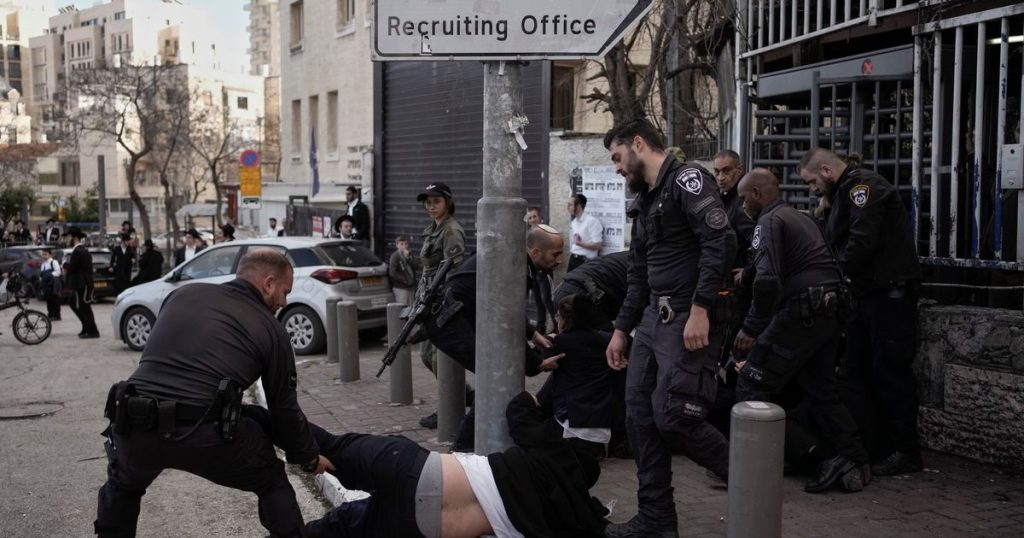The Supreme Court of Israel has ruled to curtail subsidies for ultra-Orthodox men, sparking uncertainty within Prime Minister Benjamin Netanyahu’s coalition government. The court gave Netanyahu until Monday to present a plan to dismantle a system that privileges the ultra-Orthodox at the expense of the secular Jewish public. This decision could potentially alienate the ultra-Orthodox lawmakers whose support Netanyahu relies on, leading to a potential collapse of the coalition and the need for new elections in the country.
The current system provides exemptions for ultra-Orthodox men from mandatory military service, allowing them to study full-time in yeshivas. This has led to resentment among the broader public in Israel, especially during times of war when other citizens are called upon to serve in the military. The Supreme Court deemed this system discriminatory and set a deadline for the government to present a new plan by Monday. The loss of subsidies is a blow to the yeshivas, but they can still continue to function with alternative funding sources.
The decision has been celebrated by many Israelis who see it as the end of a system that favors the ultra-Orthodox at the expense of others. The religious exemption dates back to Israel’s founding, but the rapidly growing ultra-Orthodox population has made it a divisive issue in Israeli society. Economists have long warned that the system is unsustainable and that changes are necessary to address fundamental questions about education and employment within the ultra-Orthodox community.
Ultra-Orthodox leaders have reacted angrily to the court’s decision, calling it unprecedented bullying of Torah students in the Jewish state. They argue that integrating into the army would threaten their way of life and that their dedication to religious study protects Israel as much as a strong army. The ultra-Orthodox parties, longtime allies of Netanyahu, have vowed to fight any attempt to compel their community members to serve in the military and have threatened to leave the government if their preferential status is revoked.
The decision poses a significant threat to Netanyahu’s political future as he navigates the delicate balance within his coalition government. The centrists in his cabinet have emphasized the importance of equal contribution from all sectors of Israeli society, potentially leading to a clash with the ultra-Orthodox parties. If the ultra-Orthodox lawmakers withdraw their support and the coalition collapses, Israel could be headed for new elections, with Netanyahu facing a significant challenge in the midst of a war that has already placed strain on the country’s economy and military.


